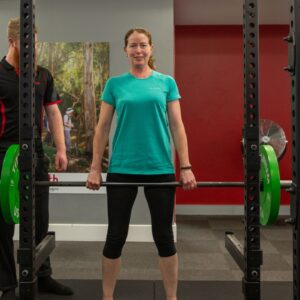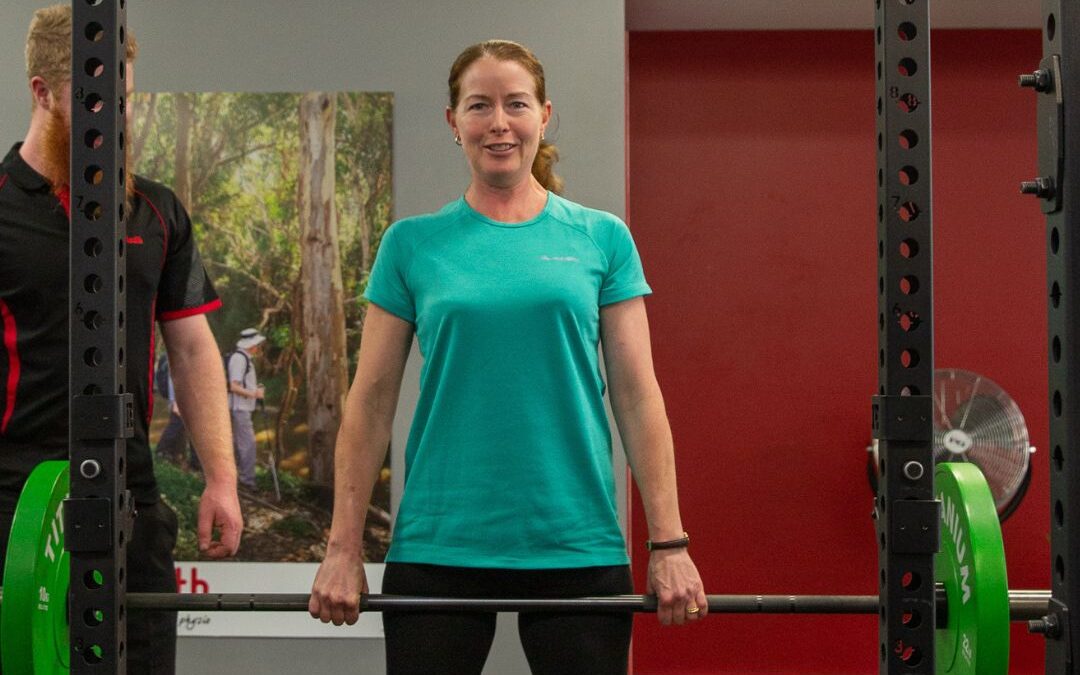Lets say you had a hip injury, you’ve done the rehab, now what?
Let’s use a Grade 1 tear of the gluteus medius (side hip) muscle as an example. From the initial assessment, it is found that the hip is restricted in normal hip range of motion (flexion, extension, internal and external rotation) and there are weak hip muscles (gluteus max, psoas, rectus femoris, hamstrings and adductors). We would start by slowly increasing the strength of those weak muscles, and progressively increase the range of motion of the hip. Once your hip pain has decreased, the hip is overall stronger, and range of motion is back to normal compared to the non-injured side. Well done!
So now that the rehab has been done, what next? We’ll look at transitioning from rehab to high performance. What this means is, we will look at other areas of the body that can be improved through increased mobility, strength and flexibility. Transition to high performance takes a few steps:
Set specific goals
This means defining what high performance means to you. Specific goals are a valuable tool and some examples may include; Having the endurance and strength to hike crater mountain in Tasmania or skiing in Japan. Make sure your goals are realistic and achievable.
Develop a plan
This is where we at MD Health create a structured training plan. This plan is tailored to your specific goals and take into account your current level of fitness and goals.
Focus on technique
Proper technique is essential. That’s why we like to keep our group sessions small so that we can ensure that each exercise is performed correctly, and the targeted muscles are stimulated.
Monitoring progress
Regular re-assessments, exercise sets, reps and weights are recorded to keep track of your progress and make adjustments to your plan when needed.
Stay consistent
Consistency is key to achieving high performance. Make sure you stick to your plan and train regularly.
Take care of yourself
Exercise is one piece of the puzzle, make sure you are getting enough sleep, eat a healthy diet and take time to rest and recover between training days.
Remember, transitioning to high performance takes time and dedication. Stay focused on your goals, consistency is the key with training, nutrition, rest and sleep. Soon you will be achieving your goals!
Do you have any questions?
- Call us on (03) 9857 0644 or (07) 3505 1494 (Paddington)
- Email us at admin@mdhealth.com.au
- Check out our other blog posts here
Our clinical staff would be happy to have chat if you have any questions.
Take the first step to a healthier you!
Would you prefer for someone to contact you to book your FREE Full Body Assessment*?
Please fill in this form and someone from MD Health will be in touch with you soon.
Alternatively please call us on:
07 3505 1494 (Paddington – Brisbane (QLD) Clinic)
Or email us:
admin@mdhealth.com.au (VIC) paddington@mdhealth.com.au (QLD)
*Please note only the Full Body Assessment is a FREE service. The Full Body Assessment is for new clients at MD Health or returning clients who haven’t been in for 6 months or longer who intend to particpiate in our 13 Week Clinical Pilates Program**.
For all new clients who wish to come in for a one-off, casual or adhoc basis for Physiotherapy or Exercise Physiology the Initial Physiotherapy or Initial Exercise Physiology appointment is a paid service.
** The 13 Week Clinical Pilates Program at MD Health is not a lock in contract and you are not required to attend for the full 13 weeks if you do not wish.
This site is protected by reCAPTCHA and the Google Privacy Policy and Terms of Service apply.




